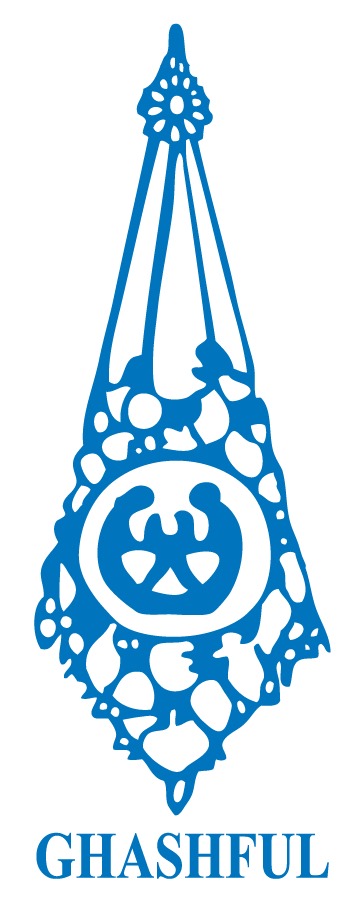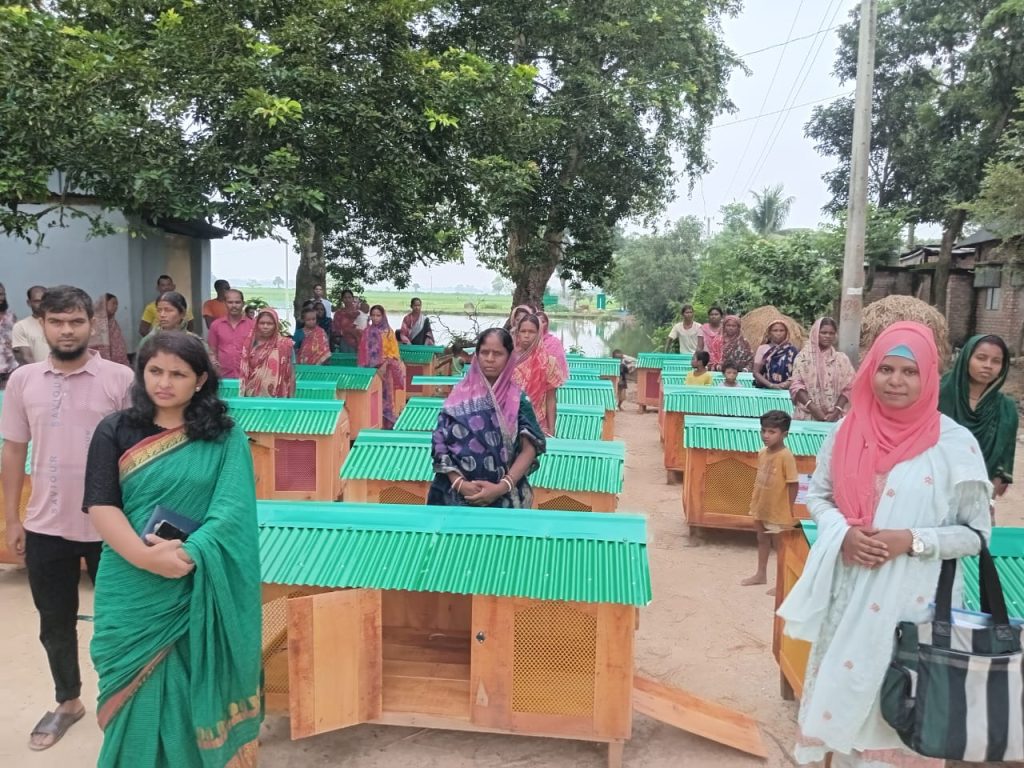In an innovative step towards climate adaptation and women’s empowerment, the Ghashful CARE Project has set a new example by distributing climate-resilient poultry sheds among indigenous women in drought-prone areas of Naogaon.
With support from the United Nations Development Programme (UNDP), the project distributed poultry sheds to 23 indigenous women of the Jioal indigenous community in Badalgachhi Upazila on Monday, 4 August 2025.
The distribution ceremony was graced by Ms. Israt Jahan Soni, Upazila Nirbahi Officer (UNO) of Badalgachhi, who attended as the Chief Guest. In her speech, she remarked: “In the context of climate change, ensuring the economic self-reliance of indigenous women alongside helping them adapt to the changing environment is the need of the hour. I sincerely appreciate Ghashful’s humane and eco-friendly initiative.”
The event was presided over by Ms. Nishat Tasnim, Project Manager of the Ghashful CARE Project, while Mr. Rakibul Alam, Branch Manager of Ghashful Badalgachhi, also addressed the gathering. Speakers noted that the project is not just providing technical support but also building a long-term, livelihood-based adaptation model that opens new horizons for women’s leadership in climate resilience.
The poultry sheds come with unique features such as three-sided mesh for adequate light and ventilation, a separate chamber suitable for breeding, and the incorporation of climate-resilient technologies to withstand heat and drought.
Project Manager Nishat Tasnim stated: “Our goal is not just to provide poultry sheds, but to raise climate awareness and empower indigenous women to become self-reliant. This will enable them to contribute to their households as well as take an active role in combating the climate crisis.”
So far, the project has distributed 50 poultry sheds in different indigenous villages of Mathurapur and Badalgachhi unions. Each shed has been designed to suit local climate conditions, reducing the risk of disease outbreaks among poultry during extreme heat and drought.
In addition, the CARE Project has earlier supported indigenous farmers with climate-resilient and eco-friendly vegetable gardens, equipping them with pheromone traps, yellow sticky traps, bio-pesticides like CueTrac Male, and specialized netting systems. This integrated pest management approach has not only protected the environment and preserved soil quality but also reduced chemical use, thereby increasing farmers’ profitability. The initiative has received encouraging responses from local communities.
According to project officials, more families will be provided with such support in the future. They believe this initiative will play a crucial role in ensuring livelihood security, advancing women’s economic empowerment, and establishing an effective model of climate adaptation for indigenous communities.


